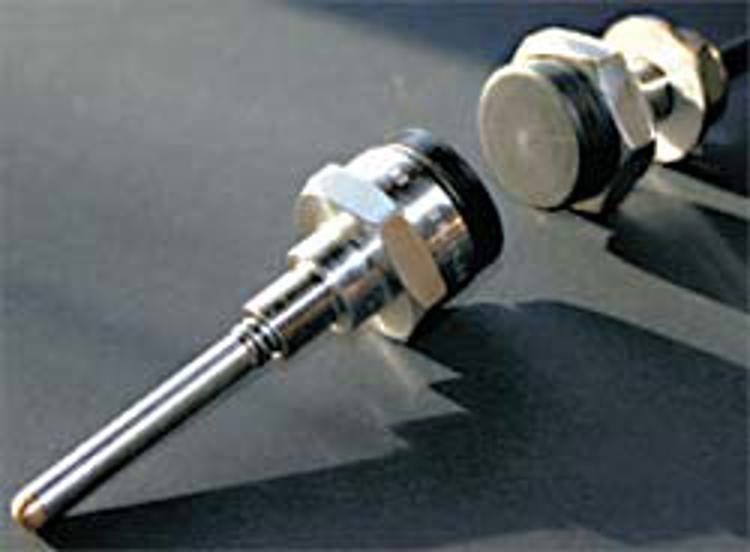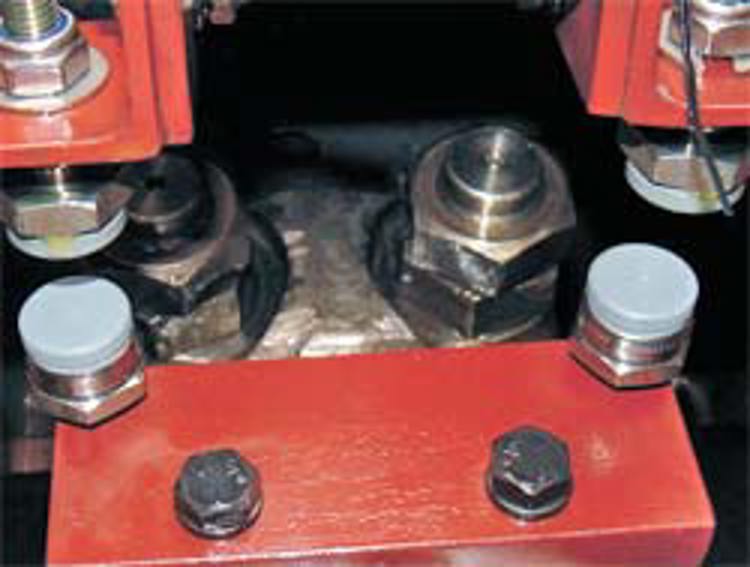
Wireless temperature monitoring for moving parts
Wireless temperature monitoring for moving parts
The SENTRY® wireless bearing temperature monitoring system is capable of continuously measuring the metal temperature of bearings during compressor operation.

Ultimate equipment for bearing temperature monitoring

Each sensor is individually interrogated from a multiplexed signal processing unit using a high frequency and low energy radar pulse. The radar pulse is transmitted to the wireless sensor through a coaxial cable to a stationary antenna located inside the crank case. When within interrogation range of the stationary antenna the sensor responds to the radar pulse by reflecting a pulse pattern back to the signal processing unit. The characteristics of the reflected pulse is uniquely defined by the temperature.

Technology
The SENTRY® system is based on a sensor technology called Surface Acoustic Wave (SAW), which opens for non-contact wireless temperature sensing without using batteries or transmitting inductive power to the sensor. In this system the air-gap between the sensor and the stationary antenna can vary between 10 and 50 millimeters, providing an very flexible installation inside the crank-case.
Main benefits
- Significantly reduced risk of unforeseeable repair costs
- Compact and simple installation
- Improved operational safety for crew and vessel
- Type approved to replace oil mist detectors
- Stand-alone or fully integrated with the alarm monitoring system
Main components
- Wireless temperature sensor
- Stationary reading antenna
- Signal processing unit
Lifecycle support for your vessel
-
24/7 Technical support
Our 24/7 technical support team is there to help at any time, day or night, wherever your vessel is.
-
Conversions, retrofit and refit
Upgrading and enhancing your vessel’s performance.
-
Training
Maximise crew efficiency and reduce downtime with expert training.